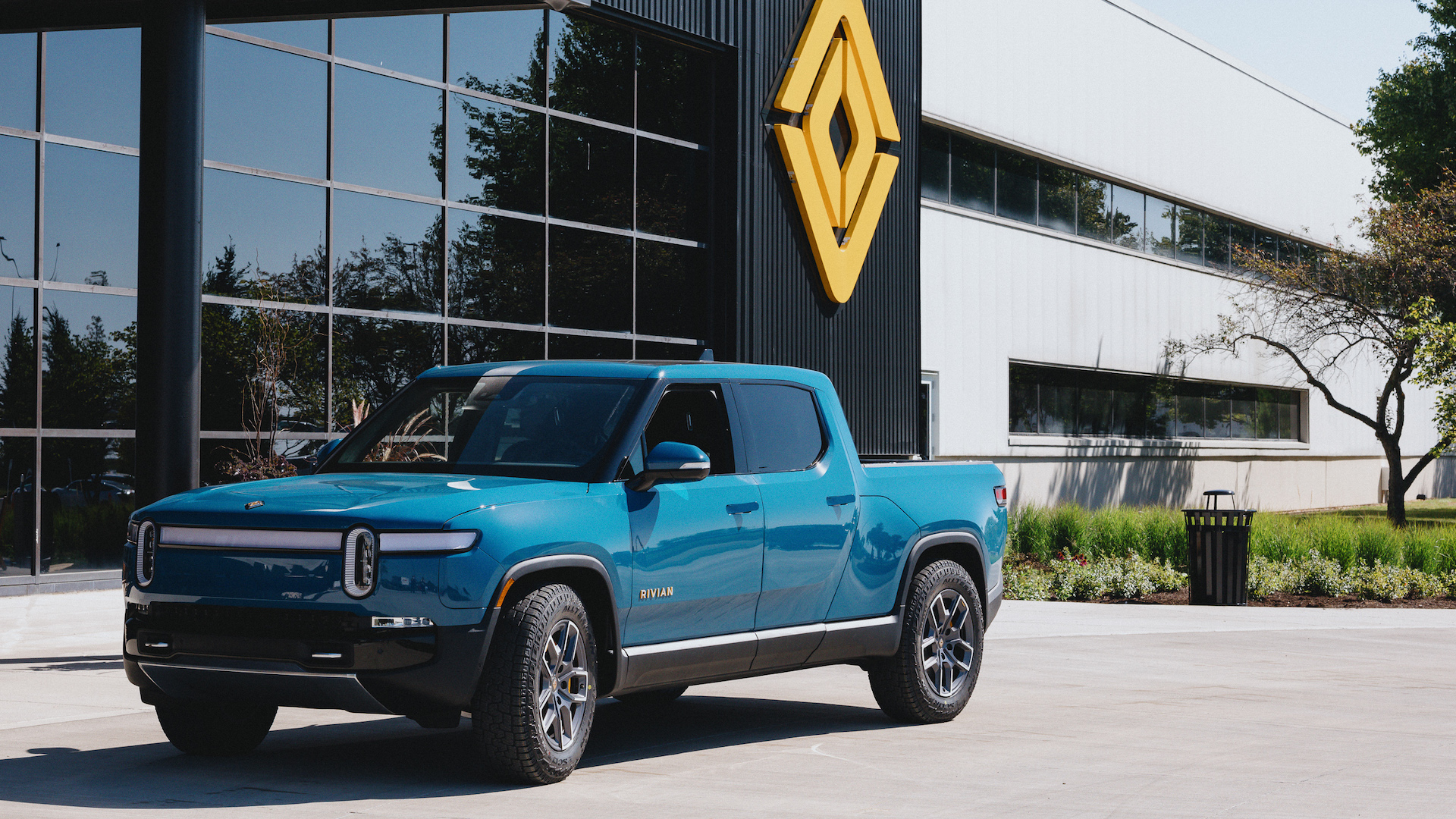

The car industry’s most recent supply chain struggles are proving to be bad news for Rivian order-holders and stockholders alike. In its Q4 2021 recap letter, Rivian says it expects to produce 25,000 trucks and delivery vans this year despite amassing roughly 83,000 reservations at present. The company says the limited production is due to supply chain woes and that under more normal circumstances, its current equipment and processes would be able to put out 50,000 vehicles a year.
Rivian’s letter reads, “We believe that throughout 2022, the supply chain will be a fundamental limiting factor in our total output for the Normal Factory and that our manufacturing equipment and processes would have the ability to produce enough vehicles to deliver over 50,000 vehicles across our R1 and RCV platforms in 2022 if we were not constrained by our supply chain. Our confidence comes from the demonstrated performance of our processes and equipment which is in line with our expectations. Despite this, due to the supply chain constraints currently visible to us, we believe we will have sufficient parts and materials to produce 25,000 vehicles across our R1 and RCV platforms in 2022.”
Back in November 2021, the company projected that it would get through its existing backlog of 55,400 reservations by the end of 2023. With these most recent projections, though, that sounds more and more like a best-case scenario. To be fair to the company, that previous outlook was made prior to Russia’s invasion of Ukraine, the related sanctions and shutdowns of which have forced the auto industry into yet another supply chain challenge.
It’s important to note that Rivian’s including its delivery vans in this 25,000-vehicle figure. It reportedly owes Amazon 10,000 of these vehicles by the end of the year, and 100,000 total by the end of the decade. If Rivian is forced to decide between making vans for its biggest investor by far and building R1 vehicles for normal consumers, the average reservation holder may be in store for an even longer wait.
After this announcement, Rivian stock fell 13 percent, trading at about $38 per share on Thursday. That’s the lowest-ever since the company’s IPO last November.
On the subject of financials, the electric vehicle startup estimates in its shareholder letter that this year will result in an operating loss of about $4.75 billion, with $2.6 billion of that accounted for in capital expenditures—that’s money spent on big-ticket, fixed assets such as facilities, equipment, and land. In 2021, Rivian operated at a loss of $2.79 billion.
In the same letter, Rivian outlined plans to pivot to a new type of battery cell made of lithium iron phosphate (LFP) for use in its Standard battery pack. Since LFP batteries do not require expensive nickel or cobalt, these packs are said to expand supply and reduce cost while providing 260 miles of ideal range when used in the R1S and R1T trucks. Late last year, Tesla made a similar move and announced the use of LFP batteries in all of its standard-battery cars.
Got a tip or question for the author about Rivian? You can reach him here: chris.tsui@thedrive.com.